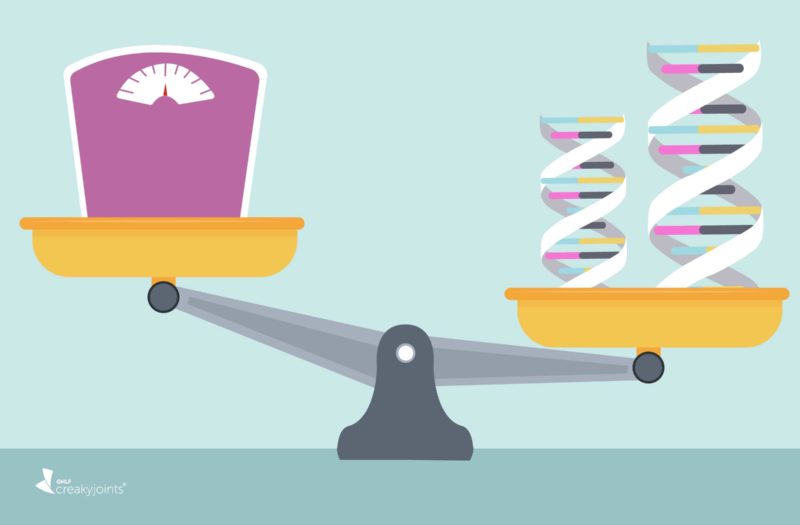Being overweight or obese has long been considered a major risk factor for gout, and it’s still true that carrying around too many excess pounds can make you more likely to develop this inflammatory condition. But a new study suggests that another factor might matter even more: your genes.
The research, which was published in the journal Arthritis & Rheumatology, relied on data and blood samples collected in the vast UK Biobank Resource. Researchers analyzed blood samples from 358,728 participants for the presence of 30 different genetic variations that have been tied to gout; these variations were added together into a composite genetic risk score (GRS).
Researchers then conducted a statistical analysis to determine the impact of having a high GRS compared to the impact of BMI. They found that a higher GRS was “associated with an increased odds of gout in individuals across all BMI groups,” adding that “genetic variants have a strong effect on gout risk in those with overweight and obese BMI, with a similar effect to that observed with low/normal BMI.”
This finding doesn’t mean that weight should no longer be considered an important factor. First, as the authors noted, previous studies looking at genetic variants and BMI on gout incidence “have reported conflicting results.” They also pointed out that this study focused solely on people of European ancestry, so it might not apply to people from other backgrounds. People younger than 40 and older than 70 were also excluded from this research.
While this study might not be the final word on the impact of genetics vs. weight on gout risk, it is a good reminder that some disease risk factors can’t be changed and that certain people inherit a strong predisposition to developing gout.
As gout has long been perceived — mistakenly — as a disease of excess (too much alcohol, high-fat foods, and weight, for example), research like this adds to the body evidence that gout appears to be largely genetic in nature. Most people with moderate to severe gout cannot treat their condition with lifestyle changes alone, such as weight loss or restricting certain foods or alcohol. Medication to reduce uric acid levels is often a critical part of successful gout treatment.
Track Your Gout Symptoms with ArthritisPower
Join CreakyJoints’ patient-centered research registry and track symptoms like flares and pain. Learn more and sign up here.
Tai V, et al. Do Serum Urate–Associated Genetic Variants Differentially Contribute to Gout Risk According to Body Mass Index? Analysis of the UK Biobank. Arthritis & Rheumatology. February 2020. doi: https://doi.org/10.1002/art.41219.






